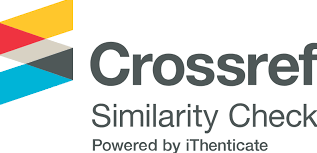CURRENT STATUS OF ECOTOURISM DEVELOPMENT IN BU GIA MAP NATIONAL PARK, BINH PHUOC PROVINCE
DOI:
https://doi.org/10.70169/VJFS.1099Keywords:
Bu Gia Map National Park, ecotourism, sustainable development, Binary Logistic Regression, Binh PhuocAbstract
Ecotourism in national parks plays an important role in forest resource management and biodiversity conservation. The study was carried out to evaluate the current status of ecotourism development in Bu Gia Map National Park, Binh Phuoc province. Data were collected from 100 domestic tourists through a questionnaire using a 5-point Likert scale. The reliability of the scale was assessed using Cronbach’s Alpha coefficient and the KMO (Kaiser-Meyer-Olkin) measure. Factors influencing ecotourism development were identified through Exploratory Factor Analysis (EFA) and examined using a Binary Logistic Regression model. The results revealed that: (1) Ecotourism activities in Bu Gia Map National Park have had positive changes with 26,912 visitors and revenue reaching 3 billion VND between 2018 and 2024. Tourists rated their satisfaction with 4.09 points regarding ecotourism in Bu Gia Map National Park. (2) EFA analysis and Binary Logistic regression model identified identified five major groups of factors influencing ecotourism developmentin Bu Gia Map National Park, including (i) Promotion - coordination; (ii) Human resources; (iii) Facilities; (iv) Services; (v) Natural resources. (3) Proposed 5 groups of solutions for ecotourism development based on the influencing factors. The study results provided a scientific and practical basis for proposing orientations for solutions to promote sustainable development of ecotourism in Bu Gia Map National Park and areas with similar conditions.
References
1. Baloch, Q. B., Shah, S. N., Iqbal, N., Sheeraz, M., Asadullah, M., Mahar, S., & Khan, A. U., 2023. Impact of tourism development upon environmental sustainability: a suggested framework for sustainable ecotourism. Environmental Science and Pollution Research, 30(3): 5917-5930. DOI: 10.1007/s11356-022-22496-w.
2. Blangy, S., & Mehta, H., 2006. Ecotourism and ecological restoration. Journal for Nature Conservation, 14(3): 233-236. DOI: 10.1016/j.jnc.2006.05.009.
3. Costanza, R., De Groot, R., Braat, L., Kubiszewski, I., Fioramonti, L., Sutton, P.,... Grasso, M. J. E. s., 2017. Twenty years of ecosystem services: How far have we come and how far do we still need to go? 28: 1-16. DOI: 10.1016/j.ecoser.2017.09.008.
4. Đinh Thanh Sang, 2019. Tiềm năng và hướng phát triển bền vững du lịch sinh thái ở Vườn Quốc gia Bù Gia Mập. Tạp chí Nông nghiệp và Phát triển nông thôn (12): 127-134.
5. Faizi, N., & Alvi, Y., 2023. Chapter 6 - Correlation. In N. Faizi & Y. Alvi (Eds.), Biostatistics Manual for Health Research (pp. 109-126): Academic Press.
6. FAO, 2014. Building a common vision for sustainable food and agriculture. Retrieved from Food and Agriculture Organization of the United Nations (FAO), Rome.
7. Habibulloev, S., Han, F., Bakhtiyorov, Z., M.A, X., & Nuhzor, O., 2024. Factors influencing sustainable development in Eco-tourism settlements: A comparative analysis. Heliyon, 10(4): e26454. DOI: 10.1016/ j.heliyon.2024.e26454
8. Hair, J. F., Black, W. C., & Babin, B. J., 2010. Multivariate Data Analysis: A Global Perspective: Pearson Education.
9. Heshmati, M., Gheitury, M., & Shadfar, S., 2022. Factors affecting possibility of ecotourism development and sustaining natural resources using SWOT approach in west Iran. International Journal of Geoheritage and Parks, 10(2): 173-183. DOI: 10.1016/j.ijgeop.2022.03.004.
10. Hien, T., Cuong, H., Loan, N., Do Thi, N., Le, A., & Sang, N., 2020. Human Resources for Tourism and Travel Business in Vietnam. Business and Economic Research, 10: 63. DOI: 10.5296/ber.v10i4.17929.
11. Kaiser, H. F., 1974. An index of factorial simplicity. Psychometrika, 39(1): 31-36. DOI: 10.1007/BF02291575.
12. Lê Xuân Nam, 2023. Mô hình nghiên cứu các nhân tố ảnh hưởng đến phát triển du lịch theo hướng bền vững. Tạp chí Kinh tế và Dự báo (15): 141-143.
13. Likert, R., 1932. A technique for the measurement of attitudes. Archives of Psychology, 140(22): 55.
14. Marulam, M., Simarmata, T., & Tri, A., 2020. Factors of Affecting Business Opportunities in Developing Ecotourism. International Research Journal of Management, IT and Social Sciences, 7(5): 130-138. DOI: 10.21744/irjmis.v7n5.980.
15. Nguyễn Công Đệ, 2022. Phát triển du lịch trên địa bàn Vùng Duyên hải Nam Trung Bộ Việt Nam theo hướng bền vững. Luận án tiến sỹ Viện Nghiên cứu Quản lý Kinh tế Trung ương.
16. Nguyễn Ngọc Hòa, Đoàn Trung Hiếu, Lê Tấn Nghĩa, Trịnh Tiến Thành, Lê Quốc Tuấn, & Nguyễn Vũ Đức Thịnh, 2022. Các nhân tố ảnh hưởng đến sự phát triển du lịch sinh thái đảo Thạnh An, huyện Cần Giờ, thành phố Hồ Chí Minh, Việt Nam. Tạp chí Nông nghiệp và Phát triển nông thôn, 21(5): 56-65.
17. Nguyễn Phước Hoàng, 2020. Các nhân tố ảnh hưởng đến sự phát triển du lịch sinh thái bền vững tỉnh Cà Mau. Tạp chí Khoa học Đại học cần Thơ, 56(2): 185-194. DOI: 10.22144/ctu.jvn.2020.046.
18. Nguyễn Thị Huỳnh Phượng, Đào Minh Thông, Nguyễn Thị Bé Ba, & Lý Mỷ Tiên, 2022. Các nhân tố ảnh hưởng đến sự phát triển du lịch sinh thái tại Cù Lao An Bình, tỉnh Vĩnh Long. Tạp chí Khoa học Trường Đại học Đồng Nai, 19(4): 667.
19. Nunnally, J. C., 1994. Psychometric Theory 3E: Tata McGraw-Hill Education.
20. Phan Thị Dang, 2015. Những nhân tố ảnh hưởng đến sự phát triển du lịch sinh thái ở Vườn Quốc gia Cát Tiên. Tạp chí Khoa học và Công nghệ Đại học Đà Nẵng, 4(48): 10-15.
21. Poursaeed, A., 2022. Factors influencing the development of ecotourism in tourist towns in Kermanshah Province, Iran. Revista de la Universidad del Zulia, 11(30): 284-314.
22. Quốc Hội, 2017. Luật Du lịch, Luật số 09/2017/QH14, ngày 19 tháng 6 năm 2017.
23. Rahman, S., & Jahan, N., 2016. Identifying the key factors influencing sustainable tourism in Bangladesh: A Quantitative Analysis. Paper presented at the Asia Tourism Forum 2016 - the 12th Biennial Conference of Hospitality and Tourism Industry in Asia: 0468 - 0473, DOI: 10.2991/atf-16.2016.73.
24. Riengchantr, A., 2018. Island Tourism and Sustainable Development in Thailand, Case Study of Koh Pha-Ngan: Liverpool John Moores University (United Kingdom).
25. The International Ecotourism Society (TIES), 2006. TIES Global Ecotourism Fact Sheet. Retrieved from Washington, DC 20090-6503, USA.
26. Thủ tướng chính phủ, 2021. Quyết định 933/QĐ-TTCP ngày 14/6/2021 về việc phê duyệt nhiệm vụ lập quy hoạch hệ thống du lịch thời kỳ 2021 - 2030, tầm nhìn đến năm 2045.
27. UBND tỉnh Bình Phước, 2021. Quyết định số 3214/QĐ-UBND ngày 24/01/2021 của UBND tỉnh Bình Phước về việc phê duyệt Phương án quản lý rừng bền vững giai đoàn 2021 - 2030 của Ban Quản lý VQG Bù Gia Mập.
28. Vũ Văn Đông, 2014. Phát triển du lịch bền vững Bà Rịa - Vũng Tàu. Luận án tiến sỹ, Trường Đại học Bách khoa Hà Nội.
29. Yee, J. Y., Loc, H. H., Poh, Y. L., Vo-Thanh, T., & Park, E., 2021. Socio - geographical evaluation of ecosystem services in an ecotourism destination: PGIS application in Tram Chim National Park, Vietnam. J Environ Manage, 291: 112656. DOI: 10.1016/j.jenvman.2021.112656.









